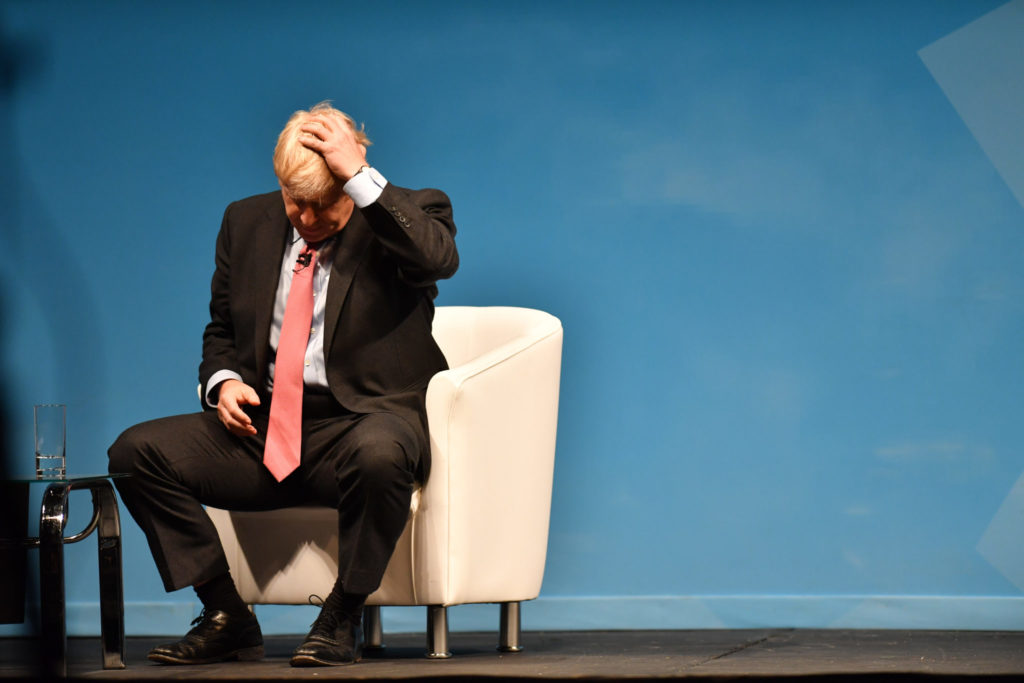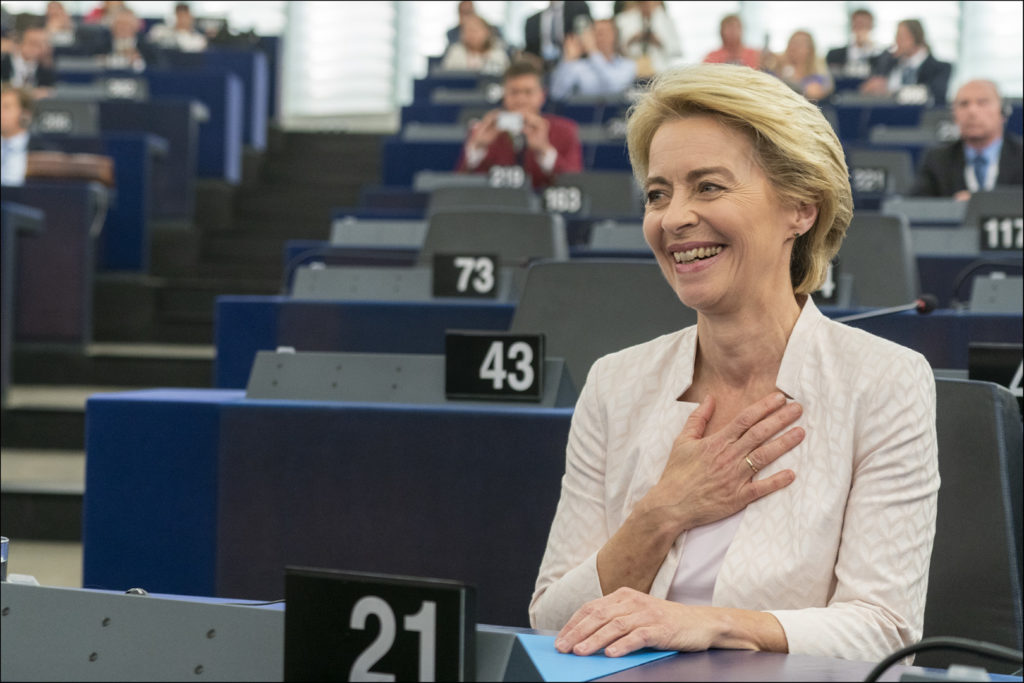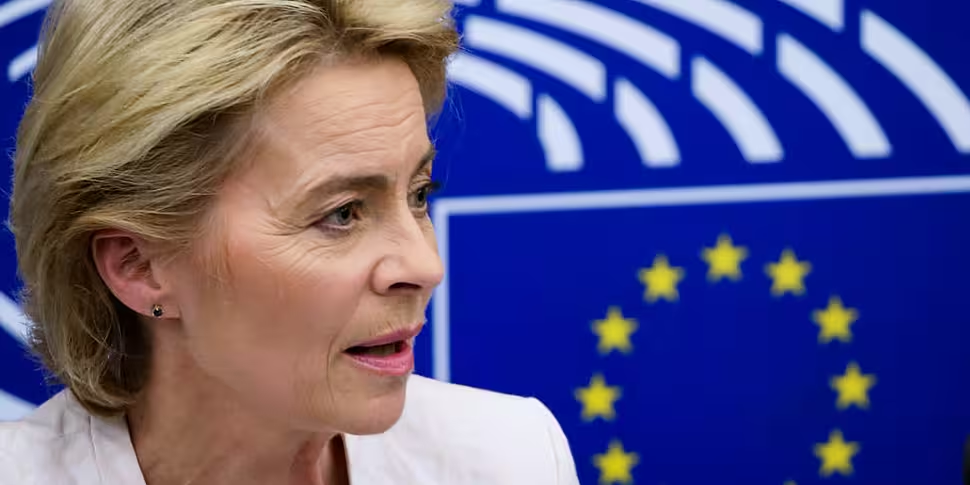The new European Commission President has said the EU may provide emergency help to countries that suffer major job losses due to Brexit.
In an interview with five major European newspapers this afternoon, Ursula Von der Leyen said a ‘no-deal’ Brexit would have “massively negative consequences” for all involved.
She said the Brexit Withdrawal Agreement is “not dead” and said she felt the EU should grant a further extension to the process if the UK offered “good reasons” for doing so.
“A Brexit without a deal comes with massively negative consequences for both sides, not to mention what it means for Ireland,” she said.
“That’s why we need to do everything to strive for an orderly Brexit – and that’s why if there are good reasons for an extension coming from our British friends, I am open to listening to them.”
 British Conservative Party leadership candidate Boris Johnson is seen in Gloucestershire, England | Image: Jacob King/PA Wire/PA Images
British Conservative Party leadership candidate Boris Johnson is seen in Gloucestershire, England | Image: Jacob King/PA Wire/PA ImagesBackstop
Both candidates to become the next UK Prime Minister, Boris Johnson and Jeremy Hunt, have promised to re-negotiate the Brexit deal and seek changes to the Irish backstop.
Speaking in the European Parliament last week, Ms Von der Leyen said the backstop was “precious, important and has to be defended.”
Today, she said the agreement is “not dead” and remains the basis for any talks with the UK.
“We don’t want a hard Brexit; it’s a bad outcome for both sides. We have a good withdrawal agreement,” she said,
“It is a good agreement, which was negotiated properly in accordance with the red lines drawn by the British government.”
 The new European Commission President Ursula Von der Leyen. Image: European Parliament
The new European Commission President Ursula Von der Leyen. Image: European ParliamentBrexit
The Government’s latest Brexit contingency plans have warned that a no deal scenario will lead to the loss of up to 55,000 Irish jobs and leave €6.5bn hole in the State’s finances in the first year alone.
Ms Von der Leyen said the EU could introduce a European unemployment benefit reinsurance scheme across the bloc to deal with the fallout.
Job losses
She said the scheme could be modelled on measures put in place in Germany in 2008 to cushion the effects of the financial crash.
At the time, the German Government cut down on job losses by introducing a state-subsidised programme to finance reduced working hours.
“We can apply this idea to the whole of Europe,” she said.
“Should an external shock such as a disorderly Brexit hit two or three countries particularly hard, for example, the unemployment reinsurance scheme could come into force.”
She said she could not predict whether Ireland would be one of the countries to benefit if the scheme was put in place.
She warned that outcome of Brexit will determine the UKs relationship with the EU for years to come, adding that “for both sides it is of the highest interest that there is an orderly and good beginning to our future relationships.”









